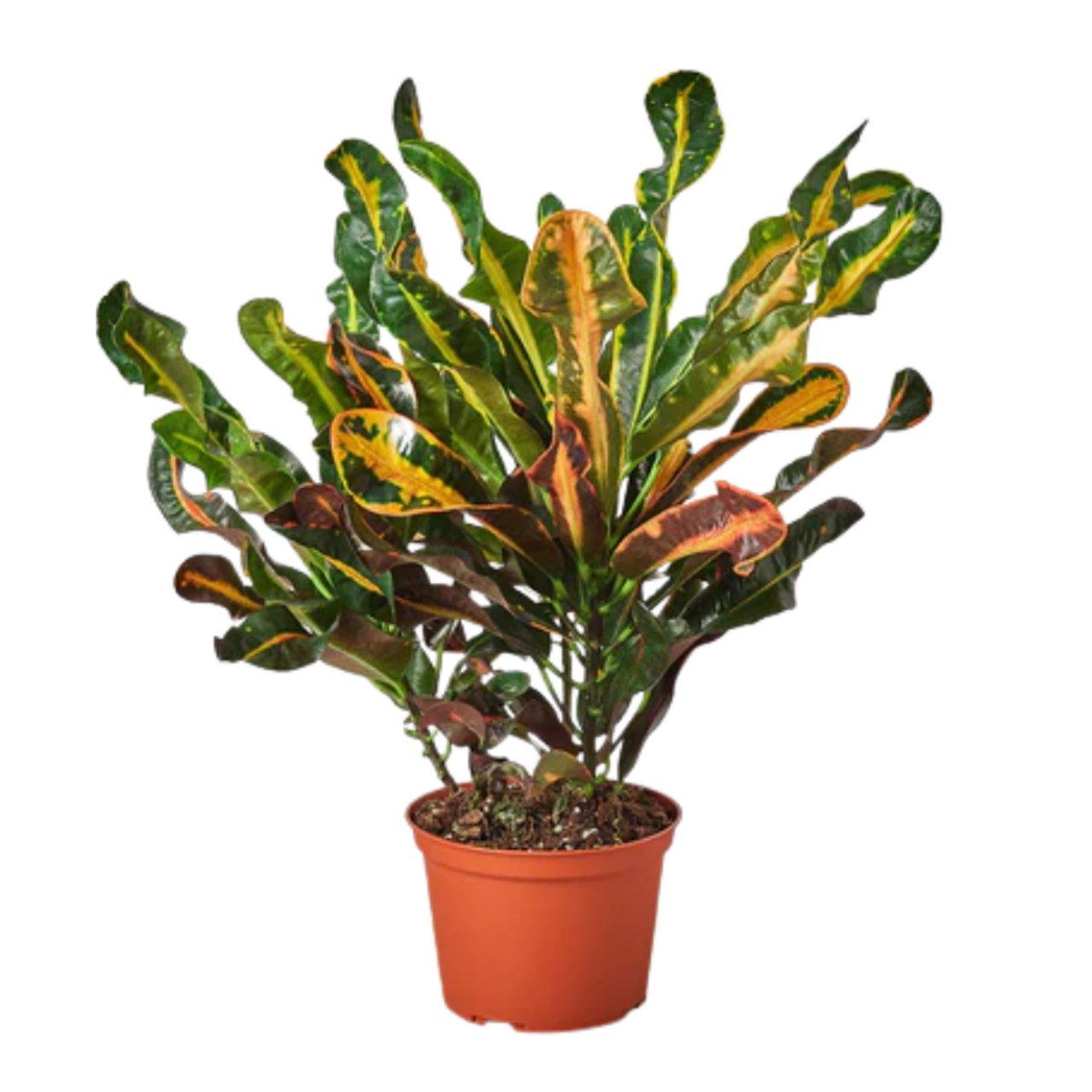Croton
About Croton

Fire Croton Garden Croton Joseph's Coat Variegated Croton
Malaysia, Pacific islands and northern Australia
Houseplants
Broadleaf Evergreen
9 - 11
Gold/Yellow, Insignificant, White
Summer
Erect, Oval
N/A
Heat, Humidity, Poor Soil
Deer, Rabbits
Where To Grow Croton Indoors
Croton displays a spectrum of colors and patterns that make them a standout choice for plant enthusiasts. Their leaves, which can be broad or narrow, often feature a mix of green, red, orange, and yellow hues, sometimes accented with spots or veins. This diverse coloration not only adds visual interest but also serves as a natural focal point in any indoor or outdoor setting. Native to tropical Asia, they thrive in warm, humid environments and adapt well as houseplants when provided bright, indirect light.
Position crotons near east- or west-facing windows to highlight their leaf patterns while avoiding direct sun that may fade colors. Use compact varieties like ‘Sunny Star’ in sleek ceramic pots as desktop accents, or larger specimens like ‘Petra’ as floor-standing focal points in living areas. Pair with neutral-toned decor to amplify their chromatic impact, and group alongside humidity-loving plants like ferns to create microclimates. Outdoors, their adaptability to various light conditions allows them to be integrated into different parts of the garden, from full sun areas to partially shaded spots.
Croton Care
Crotons require well-draining soil rich in organic matter. Water when the top inch of soil feels dry, avoiding overwatering to prevent root rot. Apply a balanced, slow-release fertilizer during the growing season to support healthy growth. Place crotons in bright, indirect light; direct sunlight can scorch the leaves, while insufficient light may dull their colors.
In cooler climates, bring potted crotons indoors before temperatures drop below 50°F (10°C) to protect them from cold damage. Sudden temperature drops or drafts can trigger leaf drop; acclimate plants gradually when moving indoors or outdoors to minimize stress. In frost-free Zones 11–12, crotons thrive outdoors in well-draining, acidic soil with partial shade to prevent leaf scorch. Propagate via stem cuttings dipped in rooting hormone and planted in moist potting mix, ensuring high humidity during root development.
Learn More About Croton












